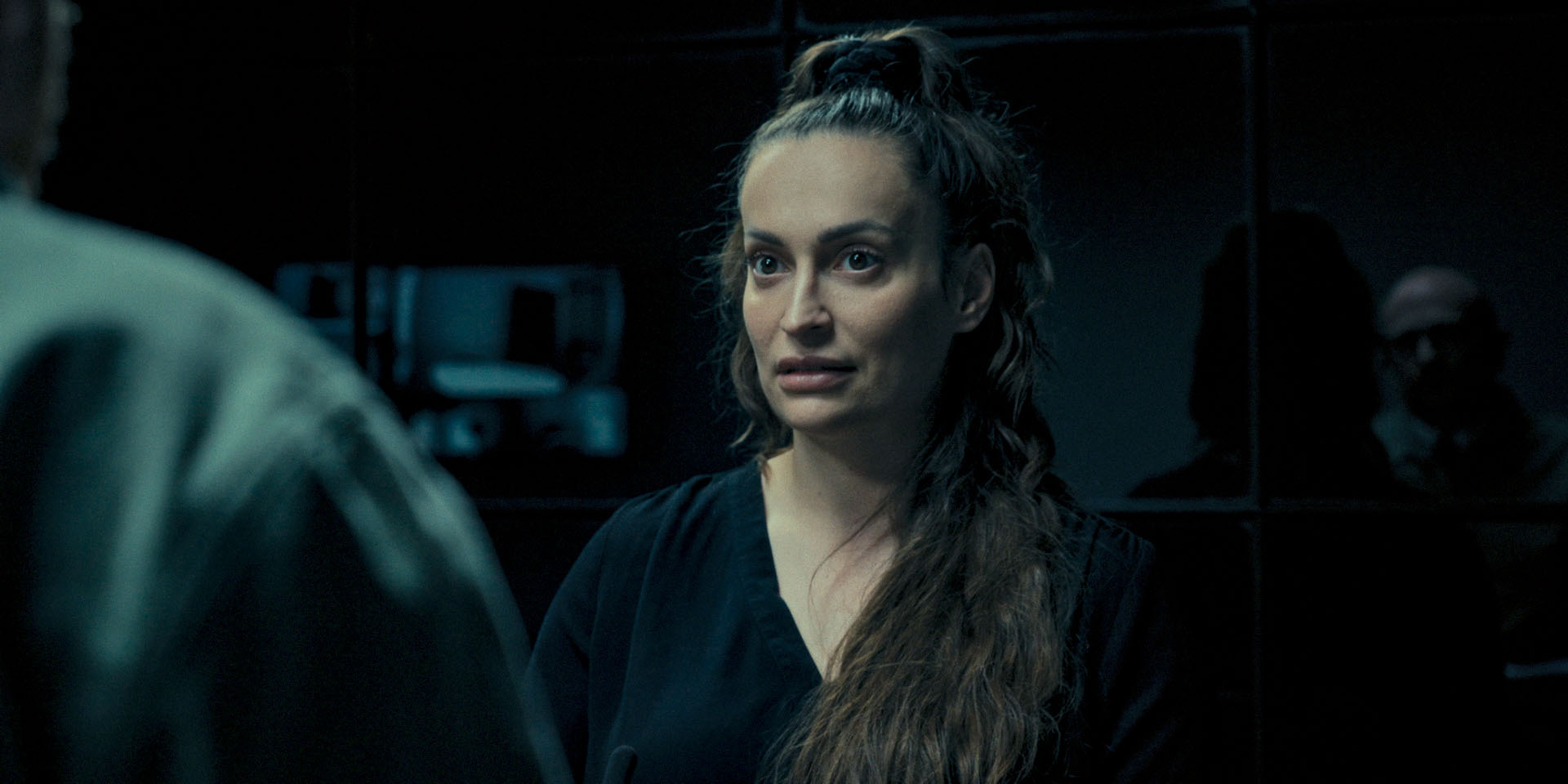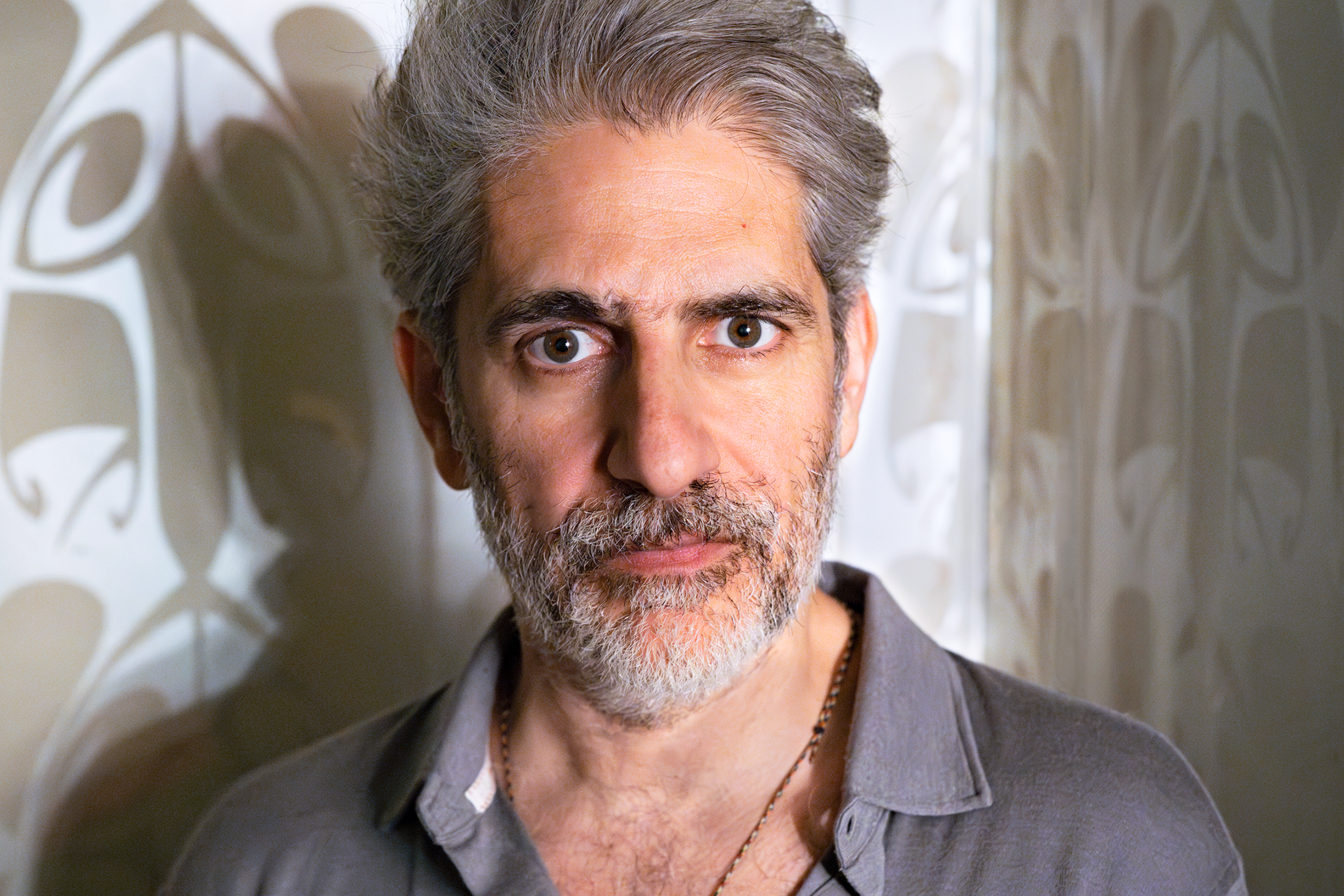The BBC Four docuseries The Black Swan is one of the most extraordinary and unsettling programmes I’ve ever seen. It’s an undercover exposé, conducted over six months, of the Danish criminal underworld and the authorities – lawyers, businessmen, officials – enabling it. First broadcast in Denmark last year – the term “black swan” denotes a rare, unpredictable event – it became one of the most watched TV programmes in the country’s history, viewed by half the population. It caused shockwaves, prompting law changes and shaking Denmark’s view of itself as an exemplar of uncorrupted ethical democracy.
Building over four episodes, it’s like being given a courtroom seat in a real-life Scandi noir crime case. At the centre, there’s business lawyer Amira Smajic, who’s spent her career advising criminals, including biker gangs, about money laundering, fraud and tax evasion, running up “billions of kroner a year”, she estimates. Her clients call Smajic the “ice queen” because of her ruthlessness. But now she wants out.
The director of the series, Mads Brügger – whose high-profile investigations into corruption include Sundance film festival winner Cold Case Hammarsköld (2019) – sets Smajic up in a Copenhagen office rigged with secret cameras and recording devices, with security poised nearby. Smajic admits her main concern is being “liquidated”.
Details of the frauds and connections between the criminal underworld and their friends in high places are fascinating. But the characters Smajic meets are volatile and dangerous. One biker gang leader laughs about trying to hang someone and the ceiling collapsing. The third episode – when conflict erupts between criminals, businessmen and lawyers, including Smajic – is unbearably tense (“I’ll crush you with my bare hands!”).
The Black Swan can sometimes feel like an overblown journalistic stunt. It attracted criticism for – at Smajic’s request – not revealing she’d been a police informant. Certainly, it makes you question the risks: how can the film-making team keep Smajic, mother to a young son, safe?
But then, who is Smajic? A Bosnian child refugee, she was enticed into criminality by the money (elsewhere, it’s recorded she had plans for podcasts, books and crime shows about her life). At one point, Smajic cries as if a dam is bursting, but generally she’s smiling, neutral, blank. Eventually, it emerges she’s playing a double game with the film-makers and is still involved in criminality. As Smajic tries to get the series axed, she becomes threatening.
It ends in a flurry of disclaimers, and reports of resignations and criminal prosecutions (Smajic was found guilty of, among other things, fraud). It’s easy to see how The Black Swan’s findings – exposing links between organised crime and respectable business and society – provoked a crisis of national identity. This is audacious, uncompromising television.
On Sky Atlantic/Now, The Death of Bunny Munro is a dramatisation of the novel by the musician Nick Cave. It’s written by Pete Jackson, who created the wonderfully atmospheric mystery series Somewhere Boy in 2022. It is set in Brighton in the early 00s, with star power provided by Matt Smith as Bunny, a travelling cosmetic salesman, wayward father and sex addict. After his wife Libby (Sarah Greene) kills herself, he must care for his nine-year-old son Bunny Jr (Rafael Mathé). When social workers turn up, the pair abscond.
This Bunny is sanitised (in the book, his interiority is all crazed fantasies). Here, his attempts to seduce his customers are quasi-comical Carry On-style affairs – including the violent failures (Elizabeth Berrington’s character punches him). He womanises like an updated, uncool Alfie: leering at gussets, sticking his head between legs and failing to muster an erection looming over a comatose drug addict.
Elsewhere, there are demons, strippers and Bunny’s vile father (David Threlfall). In terms of sex and shock, diverse influences writhe in the mix (Dennis Potter, Ken Russell, John Updike, Joe Orton), though, ultimately, the drama is most reminiscent of Cave’s rock lyrics. A good lyric has to be potent and immediate, but this concentrated writing style proves overwhelming when applied to a six-hour drama. And unfortunately, although Cave has written powerful songs about women, they are thinly drawn here. Even Libby, appearing periodically to comfort Bunny Jr, is a sweet-eyed, one-dimensional ghost.
Newsletters
Choose the newsletters you want to receive
View more
For information about how The Observer protects your data, read our Privacy Policy
The rather flat finale, featuring a cameo from Cave, concerns itself with Bunny’s comeuppance and redemption. Overall, the series is a piping-hot mess – albeit with some saving graces. It’s different (you won’t be scrolling on your phone through this) and explores its themes – struggling masculinity, fatherhood, grief – with verve. Smith commits fully to the wildest ride of his career, while Mathé is all wide, scared, damaged eyes. These performances ground the show’s hyper-absurdist excesses.
John Donnelly’s Summerwater (Channel 4), the six-part adaptation of the 2020 Sarah Moss novel, was touted as a Scottish take on The White Lotus: it starts with a fiery death and works backwards, examining one day from multiple perspectives. But The White Lotus this is not: here are a bunch of wet, windy holiday log cabins in the Highlands and a number of different families sulking, loosely held together by completely incomprehensible plotlines.
Cue flashbacks, foreboding and whirly dreamscapes. A thread featuring Dougray Scott as an unravelling doctor and Shirley Henderson as his wife is the strongest. The denouement is also handled well, but by then – alas – Summerwater has been drab and dank for too long.
There’s just time to check in on the 25th series of I’m a Celebrity … Get Me Out Of Here! (ITV1/ITVX) to see how it’s faring in what is a post-Traitors reality landscape. Oh dear. The cast – Ruby Wax, Jack Osbourne, Kelly Brook, Martin Kemp – might not be as lame as in some years. Nor are there “controversial” politicians. And Ant and Dec are fine, blah, blah. But after all the buzz and debates sparked by The Traitors – what does it say about human nature? – someone gloomily chewing on a testicle doesn’t cut it.
Photographs by BBC/Wingman Media



